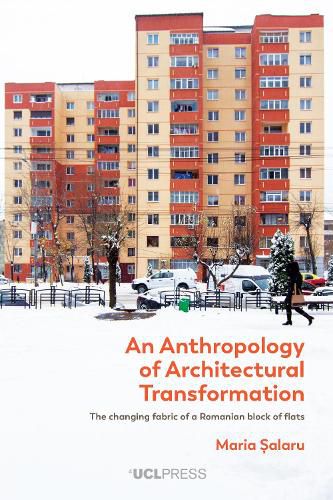Readings Newsletter
Become a Readings Member to make your shopping experience even easier.
Sign in or sign up for free!
You’re not far away from qualifying for FREE standard shipping within Australia
You’ve qualified for FREE standard shipping within Australia
The cart is loading…






An intimate study of urban change, unveiling how a single block of flats in Romania tells a larger story about architecture and the art of making a home. Maria Salaru takes readers inside a Romanian apartment block, tracing its evolution from 1974 to the present as residents navigate shifting political and economic landscapes. Through rich ethnographic detail, this work exposes how everyday acts of repair and maintenance reshape both individual apartments and the broader urban fabric of Piatra-Neam?. As state support for housing recedes, new forms of solidarity emerge--whether through self-organized communities, housing associations, or activist interventions--presenting a new perspective on the lived experience of architectural transformation.
This book opposes the view of architecture as static and instead presents buildings as dynamic spaces co-created over time by their inhabitants. It will appeal to social scientists exploring the intersection of materiality and urban change, as well as architects interested in the evolving relationship between people and the built environment. By capturing the micro-scale transformations that collectively redefine city life, An Anthropology of Architectural Transformation provides a persuasive case for rethinking how we study and inhabit our shared spaces.
$9.00 standard shipping within Australia
FREE standard shipping within Australia for orders over $100.00
Express & International shipping calculated at checkout
An intimate study of urban change, unveiling how a single block of flats in Romania tells a larger story about architecture and the art of making a home. Maria Salaru takes readers inside a Romanian apartment block, tracing its evolution from 1974 to the present as residents navigate shifting political and economic landscapes. Through rich ethnographic detail, this work exposes how everyday acts of repair and maintenance reshape both individual apartments and the broader urban fabric of Piatra-Neam?. As state support for housing recedes, new forms of solidarity emerge--whether through self-organized communities, housing associations, or activist interventions--presenting a new perspective on the lived experience of architectural transformation.
This book opposes the view of architecture as static and instead presents buildings as dynamic spaces co-created over time by their inhabitants. It will appeal to social scientists exploring the intersection of materiality and urban change, as well as architects interested in the evolving relationship between people and the built environment. By capturing the micro-scale transformations that collectively redefine city life, An Anthropology of Architectural Transformation provides a persuasive case for rethinking how we study and inhabit our shared spaces.